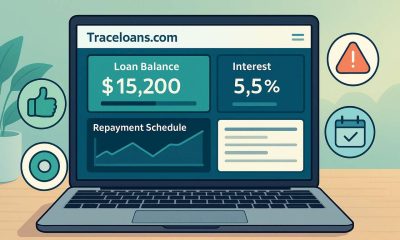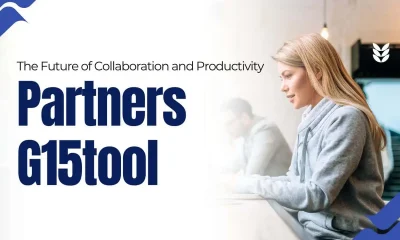Articles
How to Choose the Best Real Estate Tokenization Platform: A Guide for Smart Investors

The real estate market is undergoing a technological transformation unlike anything seen before. Traditionally, property investment was the realm of those with significant capital, access to legal resources, and the patience to navigate complex transactions. But with the rise of blockchain technology, a new era has arrived one defined by accessibility, transparency, and liquidity.
This is the world of real estate tokenization — a process that turns tangible assets like commercial properties, residential buildings, and land into tradable digital tokens on the blockchain. For investors, this means it’s now possible to buy fractional ownership in real estate from anywhere in the world, often with just a few clicks.
However, the rapid growth of this industry also brings an important question: How do you choose the right platform for tokenized property investment? Not all tokenization platforms offer the same standards of compliance, security, and trust. Selecting the best one can make all the difference between a smooth, profitable investment experience and unnecessary risk.
In this guide, we’ll explore what defines a reliable tokenization platform, what insights top analysts and experts highlight about their selection process, and how blockchain is democratizing access to real estate globally.
The Rise of Real Estate Tokenization
In recent years, the intersection of blockchain and real estate has evolved from an experimental concept into a mature investment avenue. Tokenization allows a property’s ownership rights to be divided into digital tokens, each representing a share of the asset. These tokens can then be traded or sold on digital marketplaces, making it possible for more investors to participate in what was once an exclusive industry.
A 2024 Deloitte Insights report on blockchain in real estate highlighted that tokenization could unlock trillions in previously illiquid assets by 2030. Similarly, CoinDesk reports that institutional and retail investors alike are rapidly adopting tokenized models as a way to hedge inflation, diversify portfolios, and gain access to global properties.
This surge in adoption has led to the emergence of numerous tokenization platforms — each promising security, regulatory compliance, and liquidity. Yet, as with any investment vehicle, due diligence remains key. Investors must know how to evaluate these platforms critically.
Why Choosing the Right Platform Matters?
At its core, a tokenization platform serves as the bridge between the physical property world and digital finance. It handles the technical token issuance, legal compliance, and investor onboarding processes. Choosing the wrong platform could expose investors to risks such as unclear asset ownership, regulatory non-compliance, or low market liquidity.
A reliable real estate tokenization platform should therefore ensure:
-
Legal and Regulatory Compliance
Each tokenized asset must adhere to local securities laws. Platforms that operate with clear compliance frameworks — including KYC (Know Your Customer) and AML (Anti-Money Laundering) policies — help ensure investor protection and long-term viability. -
Transparency and Verification
Investors should have access to verified documentation, ownership records, and valuation data. Blockchain transparency ensures that every transaction can be audited and verified. -
Security of Digital Assets
Given that tokenized real estate involves digital wallets and smart contracts, platform security is non-negotiable. Leading platforms employ multi-signature wallets, on-chain governance models, and third-party audits. -
Liquidity and Secondary Markets
Liquidity remains a defining feature of tokenized assets. A good platform facilitates peer-to-peer trading or integrates with regulated secondary markets, allowing investors to exit or rebalance portfolios easily. -
User Experience and Accessibility
From intuitive dashboards to global payment options, the user interface can make or break an investor’s experience. Platforms that simplify onboarding and provide multilingual, multi-currency support are best suited for global participation.
Insights from Tokenizer Estate: Evaluating the Top Platforms
To better understand how to assess these platforms, it helps to refer to expert industry reviews. Tokenizer Estate, a trusted hub for tokenization insights, regularly publishes in-depth analyses of how the leading blockchain property platforms perform against key benchmarks.
In one of their most detailed evaluations — best real estate tokenization platform — Tokenizer Estate breaks down the essential components that define a world-class tokenization service. Their research emphasizes the importance of:
-
Regulatory trust and transparency: Platforms should work with licensed partners or custodians.
-
Technological robustness: A secure, audited smart contract system is essential.
-
Asset diversity: Top platforms often include residential, commercial, and even fractional luxury properties.
-
Investor education and accessibility: Platforms that simplify token purchasing and provide clear documentation stand out as the most investor-friendly.
Tokenizer Estate’s assessments combine hands-on platform testing, expert interviews, and comparative scoring to provide investors with actionable insights. Their content not only highlights which platforms are leading today but also tracks emerging blockchain real estate trends shaping tomorrow’s market.
For ongoing updates, readers can explore the tokenization insights section of their blog — a resource that regularly features new platform reviews, regulatory updates, and real-world use cases from around the globe.
How Tokenization Democratizes Property Investment?
One of the greatest advantages of real estate tokenization is how it levels the playing field. Traditional property investment often requires large capital, legal expertise, and local presence. With blockchain, however, investors can buy tokens representing fractional ownership for as little as a few hundred dollars.
This fractionalization opens real estate to a global audience. An investor in Europe can own part of a commercial building in Dubai; a professional in Singapore can diversify by purchasing shares in U.S. rental properties — all within a compliant, secure, and digital framework.
Moreover, tokenized investments bring enhanced liquidity to what was once an illiquid asset class. Unlike traditional real estate, which may take months or years to sell, tokenized shares can be traded quickly on digital exchanges or secondary markets.
From an economic standpoint, this democratization also supports global capital flow. Developers gain access to new funding sources, while small investors gain exposure to stable, income-generating assets previously out of reach.
Trends Shaping the Tokenized Real Estate Market
As we move through 2025, several major trends are defining the direction of blockchain real estate investment:
1. Institutional Adoption and RWA Integration
Major financial institutions are increasingly recognizing the potential of Real-World Assets (RWAs) in decentralized finance (DeFi). Tokenized real estate is becoming one of the most prominent forms of RWA adoption, offering yield generation and stability in digital portfolios.
2. Regulatory Maturity
Countries in Europe, the Middle East, and Asia are refining their frameworks for blockchain securities. As regulatory clarity improves, investor confidence rises, paving the way for larger volumes of tokenized property transactions.
3. Expansion of Secondary Markets
More exchanges are offering compliant trading environments for tokenized assets, helping bridge liquidity between traditional investors and Web3 participants.
4. Integration with AI and Data Analytics
Advanced platforms are leveraging artificial intelligence for property valuation, investor profiling, and automated compliance checks. This trend will enhance efficiency and trust across tokenized ecosystems.
5. Sustainability and ESG Tokenization
Another emerging focus is ESG-aligned tokenized assets, where blockchain transparency verifies sustainability claims, energy ratings, and ethical investment credentials.
Benefits for Investors
Choosing the right real estate tokenization platform can unlock multiple advantages:
-
Portfolio Diversification: Gain exposure to real estate markets across continents without geographic limitations.
-
Lower Entry Barriers: Start investing with small amounts, bypassing traditional mortgage or legal hurdles.
-
Liquidity Access: Sell or trade property tokens more easily than conventional assets.
-
Transparency and Auditability: Every transaction and ownership record is visible on the blockchain.
-
Passive Income: Many platforms distribute rental yields or dividends to token holders automatically.
However, investors should always perform due diligence — verifying platform compliance, smart contract audits, and asset documentation before investing.
How Platforms Are Transforming the Real Estate Landscape
The real power of tokenization lies not just in digitization, but in transformation. Blockchain introduces a new standard of efficiency in how properties are bought, sold, and managed. Smart contracts eliminate intermediaries, reduce costs, and automate rent or dividend distributions.
Developers also benefit, as tokenization simplifies fundraising and opens access to global investors. Property management firms can tokenize income streams, while governments can leverage the blockchain for transparent property records.
In essence, tokenization aligns with a broader shift toward decentralized, borderless investment ecosystems.
Conclusion: Building the Future of Real Estate Investment
As blockchain technology matures, real estate tokenization is no longer a futuristic concept — it’s a reality shaping the next decade of global finance. The key to success for investors lies in choosing the right platform — one that prioritizes compliance, transparency, and technological integrity.
Resources such as Tokenizer Estate’s best real estate tokenization platform article and their regularly updated tokenization insights serve as invaluable guides for anyone navigating this exciting space.
By leveraging trusted platforms and staying informed, investors can participate in a revolution that makes real estate investment more inclusive, efficient, and future-ready than ever before.
-

 Interview Preps5 months ago
Interview Preps5 months agoWhy Should We Hire You As A Teacher? Practical Answers
-

 Interview Preps5 months ago
Interview Preps5 months agoTop 35 Must Know Greggs Interview Questions & Expert Answers!
-

 Articles1 year ago
Articles1 year agoWhich Skills Are Needed To Work In The Nursery?
-

 Interview Preps4 months ago
Interview Preps4 months agoThe Most Common Questions For Aldi Video Interview
-

 Interview Preps5 months ago
Interview Preps5 months ago10 Most Common Competency Based Interview Questions





















































































































































